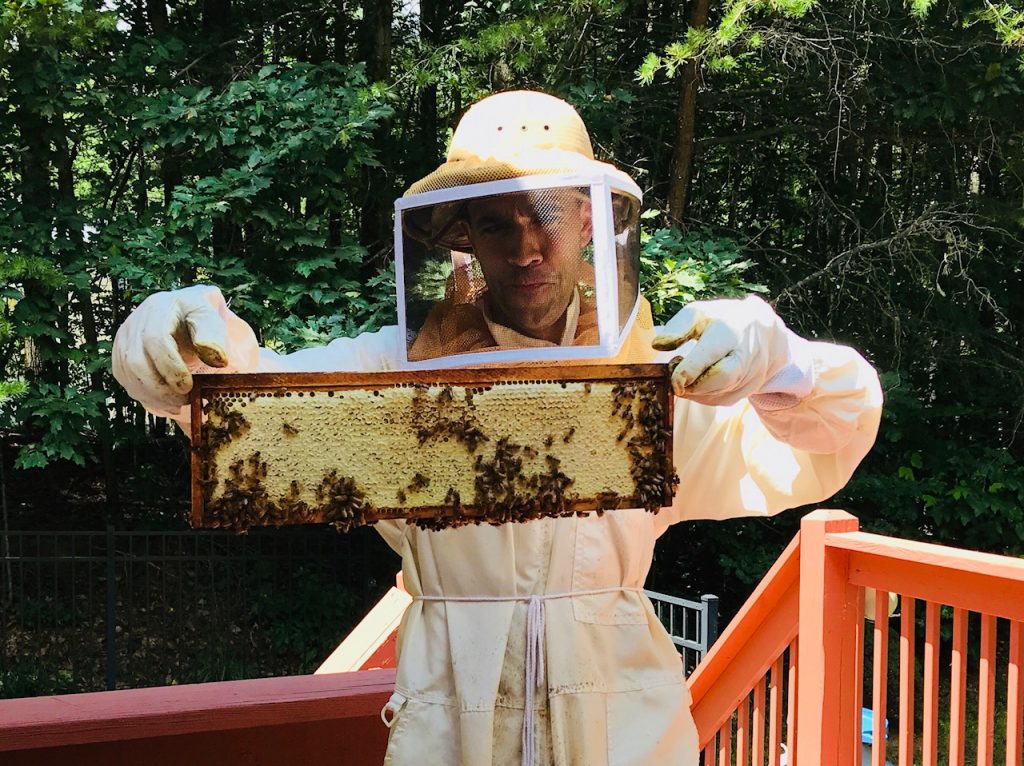
From time to time this news feed will include a closer look at our attorneys. The posts will be on topics not necessarily about the law but about what is personally important to our attorneys outside the office. This is the third installment of our spotlight as we feature Attorney Matt Roberson. Click here to see his bio.
As you may have noticed, Matt is a beekeeper. Pictured above he is checking on the health of the hive. I believe he was pleased with what he saw. Matt wrote us an article about how he got into beekeeping and how it fits into his life. Thank you Matt for sharing this with us!
“Two years ago, I took up and carried on a long time hobby of my grandfather: beekeeping. For many years, my grandfather, Boomer, kept bees in the field above his home in Woodfin. But ten years ago, colony collapse disorder and advanced age led Boomer to pass on the hobby to my father. When Boomer passed away in 2015 his suit, hat, smoker and some of the remaining hive boxes that sat in the corner of his basement for several years were given to me. With guidance from my father, I established my first hive and successfully overwintered the bee colony.
Honeybees are one of the few social insects. Thirty to forty thousand bees in a single hive perform a variety of complex and intriguing tasks as a team to sustain and protect the colony and ultimately provide us with a surplus of honey that we harvest and enjoy. The queen and nurse bees nurture and raise brood throughout the season. House bees keep the hive hygienic and store the nectar and pollen collected by foraging bees. Foraging bees perform intricate “waggle” dances in the darkness of the hive providing coordinates to nearby nectar sources for fellow foragers crowded around. All of this done in approximately one cubic foot of space.
As the number of hives declined as the result of colony collapse disorder, and its origins in the overuse of pesticides and the explosion of parasitic mite populations, the role of a beekeeper is increasingly important in sustaining and growing bee colonies to preserve the benefits they provide in honey production and pollination.
Experts over the last ten years have determined that successful beekeepers must first understand the natural instincts of the bee and the organization of the particular hive. And from that knowledge, provide a comfortable home and disturb the bees as little as possible so that colonies can grow large, vigorous and able to self-manage many of the pests and diseases that can ravage a colony. So it is one of the great joys of a beekeeper to sit near the hive box on a warm summer afternoon listening to the low hum of a working colony and watching bees effortlessly come and go in near perfect harmony.
I employ this same mindset professionally, where I partner with clients to understand their businesses, challenges and goals. As with my bees, I want to understand a client’s organization and needs so that we here at McGuire Wood & Bissette can bring our unique talents and skills to help clients grow and succeed. It is one of our great joys to see a successful and satisfied client and we welcome the opportunity to do that each day.”